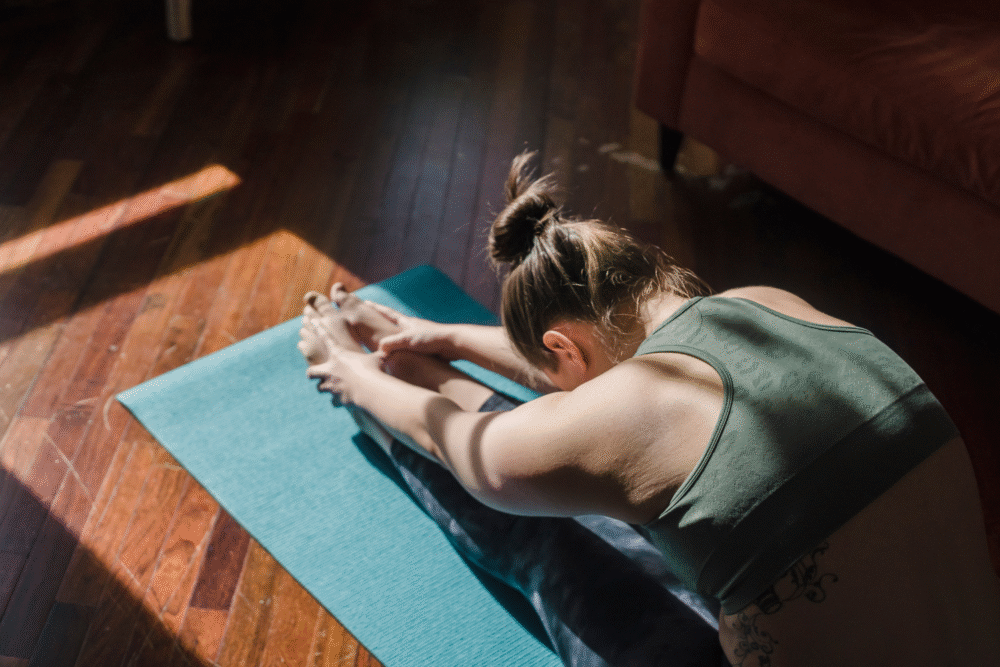Movement turns pressure into relief when the office can’t.

Young adults face a cocktail of long hours, screen fatigue, and the constant drip of notifications. Stress piles up faster than coping strategies keep pace. The easiest outlet often hides in plain sight: fitness. The right habits turn exercise into more than strength—it becomes stress management.
These seven practices show how weaving movement into everyday life eases work-related tension and builds resilience that no energy drink can replicate.
1. Walking breaks recharge the brain.

Short, intentional walks during workdays clear the mind, loosen muscles, and reset focus. Even ten minutes outdoors can undo hours of screen strain.
Regular walks act like moving meditation. They remind the body it’s not chained to a chair. With consistency, they reduce stress and sharpen concentration without feeling like a workout at all.
2. Strength training builds more than muscle.

Lifting weights or using resistance bands provides stress relief by channeling energy into effort. Each rep becomes a release valve for workplace tension.
The added benefit is confidence. Watching strength improve carries over into work life, creating a sense of control and stability. Stronger bodies often mean steadier minds.
3. Yoga resets both posture and mood.

Hours at a desk tighten shoulders and stiffen backs. Yoga unwinds those knots while calming nervous energy. Slow breathing pairs with movement to anchor the mind.
Practiced regularly, yoga becomes a tool for stress prevention, not just relief. It’s less about flexibility and more about creating a calmer baseline for daily chaos.
4. Morning workouts set the tone.

Starting the day with exercise creates momentum. Endorphins spike early, carrying resilience into meetings and deadlines. Morning sessions also reduce the chance of skipping workouts when evenings get crowded.
For young adults balancing work and social lives, mornings carve out non-negotiable time. The routine builds discipline while giving stress less room to grow.
5. Group classes turn stress into community.

Shared workouts bring accountability and camaraderie. Spin classes, CrossFit boxes, or dance sessions connect people while burning stress. The social lift matters as much as the physical one.
Group environments also help young adults step away from solitary screen time. Stress feels lighter when shared, even through sweaty smiles.
6. Stretching routines break tension cycles.

Five minutes of stretching before bed or after work can transform stress levels. Loosened muscles lead to better sleep, which reduces daily strain.
Stretching is simple but powerful. By making it habitual, the body learns to release tension before it snowballs. It’s preventive care disguised as something almost too easy.
7. Consistent sleep supports every workout.

Stress compounds when sleep suffers, and fitness struggles without recovery. Making bedtime routines a priority locks in the benefits of every workout.
Young adults often sacrifice sleep to catch up on work or social life. Reversing that habit pays dividends. With solid rest, fitness stops feeling like effort and starts functioning as stress armor.
